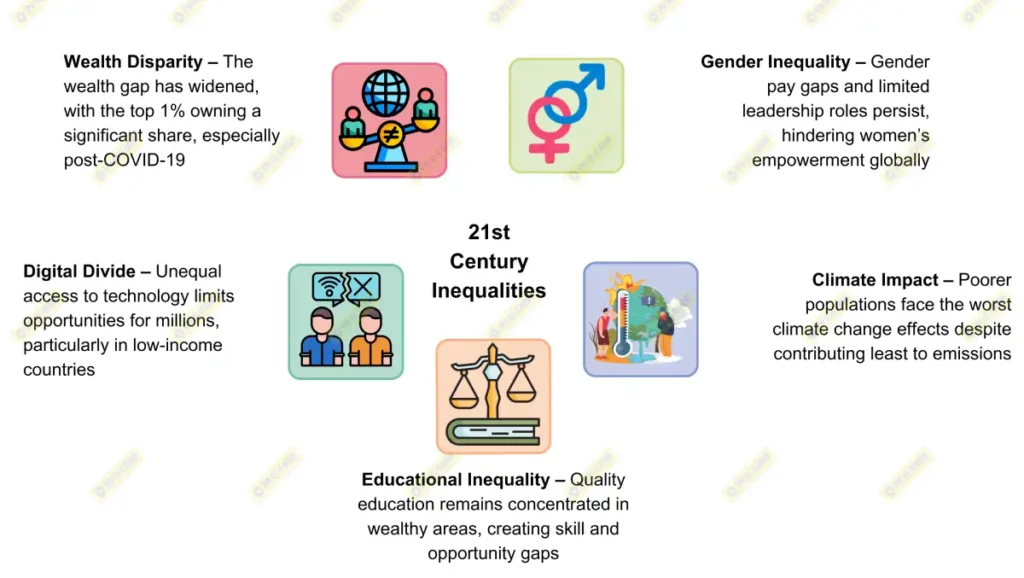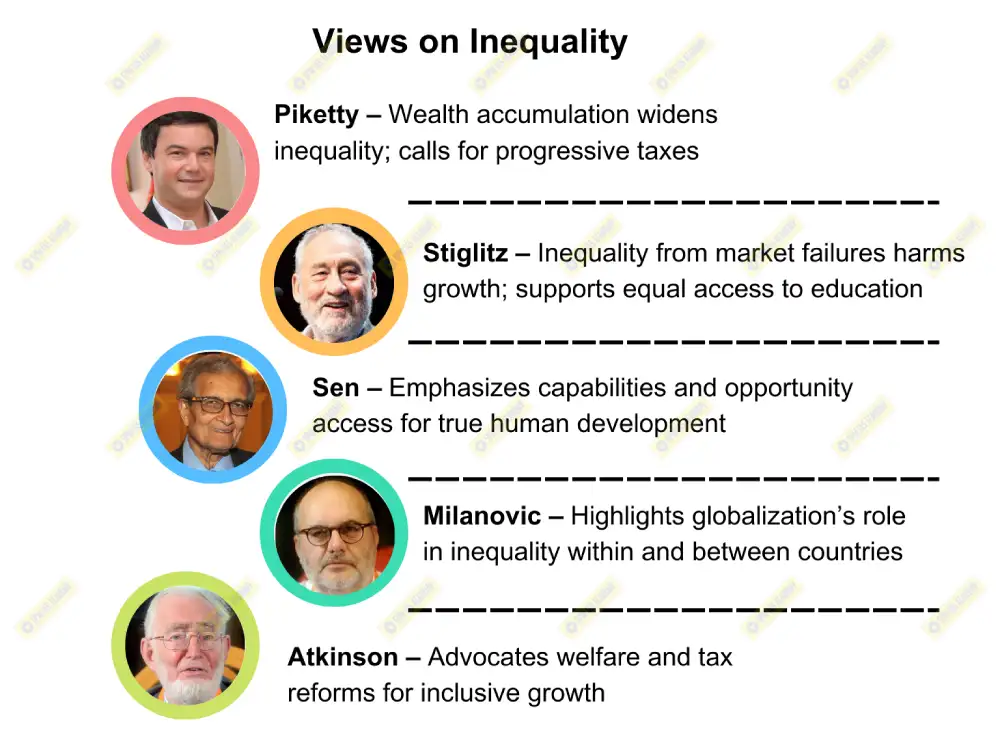The 21st century calls for a paradigm shift in addressing poverty and inequality. Simply offering charity, while alleviating immediate suffering, fails to address the systemic factors that perpetuate socio-economic divides. As economist Amartya Sen argues, true development “is not only about raising income levels but also about enhancing individual freedoms and capabilities.” Charity alone can create dependency rather than empowerment, leaving the root causes of inequality unchallenged. What is needed is transformative change through structural reforms, inclusive economic policies, and empowerment initiatives that foster equity and long-term self-sufficiency.

The Limitations of Charity in Addressing Systemic Inequality
1. Charity as a Short-Term Solution:
- Charity often addresses the symptoms of poverty but leaves the underlying causes unchallenged. While it can provide temporary relief, it does not offer sustainable solutions for upward mobility. For instance, food and clothing drives for impoverished communities meet immediate needs but fail to address the structural issues—such as lack of access to quality education, healthcare, or job opportunities—that perpetuate poverty.
- The global pandemic highlighted these limitations. Though significant charity initiatives emerged to provide immediate relief, the World Bank reported that over 97 million people were pushed into extreme poverty by 2021, emphasizing that charity alone cannot counter systemic vulnerabilities.
2. Risk of Dependency:
- Charity-based models risk creating dependency, where marginalized communities rely on external assistance rather than achieving self-sufficiency. Programs focused on empowerment rather than aid, such as India’s Mahatma Gandhi National Rural Employment Guarantee Act (MGNREGA), aim to foster economic independence. MGNREGA provides employment opportunities to rural households, giving them an income source rather than mere relief, thus enhancing dignity and self-reliance.
3. Maintaining Status Quo and Economic Inequality:
- Charity without structural change often upholds the status quo, allowing the economic divide to persist. The Oxfam Report 2022 highlighted that the top 10% of the world’s population owns nearly 76% of global wealth, while the bottom 50% holds just 2%. Such disparity indicates that wealth creation has disproportionately benefited a few, leaving charity as a “band-aid” solution rather than addressing the wealth accumulation mechanisms themselves.
- Structural initiatives, such as progressive taxation and wealth redistribution, can address this imbalance more effectively than charity alone.
Shifting Focus: Sustainable and Empowering Initiatives
1. Inclusive Economic Policies and Financial Inclusion:
- To bridge the gap between the “haves” and the “have-nots,” economic policies must ensure that opportunities for growth are available to all. Financial inclusion initiatives like Pradhan Mantri Jan Dhan Yojana (PMJDY) in India have proven effective in bringing over 500 million previously unbanked individuals into the formal financial system. By enabling access to banking and microcredit, PMJDY empowers marginalized communities to invest in small businesses, education, and health, fostering economic mobility.
- As Muhammad Yunus, founder of the Grameen Bank, observed, “Credit is a human right.” This ethos of financial inclusion underscores the importance of access to resources that allow individuals to lift themselves out of poverty rather than remaining dependent on charity.

2. Education and Skill Development:
- Education is a powerful tool for empowerment and social mobility. Merely donating educational materials does little if children and youth lack access to quality education and skill development. Initiatives like Skill India aim to train over 400 million people by 2022, equipping them with skills aligned to market demand, thus addressing unemployment at its roots.
- This shift from charity to empowerment aligns with Dr. B.R. Ambedkar’s belief that “Education is something which ought to be brought within the reach of everyone.” By fostering an environment where individuals gain skills and knowledge, society can break the cycle of poverty across generations.
3. Healthcare as a Right, Not a Charity:
- The COVID-19 pandemic underscored the limitations of charitable health campaigns in addressing systemic healthcare deficiencies. Sustainable healthcare initiatives, such as India’s Ayushman Bharat scheme, provide 500 million people with insurance coverage for major medical treatments, empowering citizens to access healthcare as a right rather than a privilege. Such initiatives ensure that healthcare is universal, preventive, and not dependent on the goodwill of charitable organizations.
4. Building Resilient Infrastructure and Climate Justice:
- Climate-related disasters disproportionately affect poorer communities. Charity-based aid in the wake of such disasters can only do so much; what’s needed is resilient infrastructure and sustainable practices. India’s leadership in establishing the Coalition for Disaster Resilient Infrastructure (CDRI) aims to support developing nations in building resilient infrastructure that withstands climate shocks, thus reducing the need for repeated aid post-disaster.
- Sustainable environmental policies, especially for vulnerable communities, are crucial in addressing climate justice. By investing in climate adaptation infrastructure, the global community can prevent vulnerable populations from repeatedly facing catastrophe, thereby promoting resilience rather than dependency.
Holistic Development and the Path Forward
1. Human Rights-Centric Development:
A truly “new century” envisions development as a human right rather than a privilege dispensed by the wealthy. Nobel Laureate Amartya Sen advocates for this approach, where development is measured by expanded freedoms, not just economic gain. This perspective supports the view that poverty alleviation requires structural change to empower individuals and communities to claim their rights.
2. Public-Private Partnerships (PPPs):
Collaborative models between government and private entities can drive sustainable change. Corporate Social Responsibility (CSR) initiatives, when aligned with national goals, can address core issues such as education, sanitation, and vocational training. Such partnerships can supplement government efforts to provide essential services, creating a multiplier effect that enhances public welfare and reduces inequality.
3. Focus on Social Equity and Policy Reform:
Sustainable social change requires addressing inequalities in land ownership, education access, and employment opportunities. Structural policy reforms such as land redistribution and affirmative action are essential in dismantling historical inequities that keep the “have-nots” marginalized. For example, India’s affirmative action policies in education and employment have played a significant role in uplifting disadvantaged communities.
To truly create a “new century,” efforts must move from temporary relief to empowering individuals and fostering systemic transformation. As Mahatma Gandhi said, “Poverty is the worst form of violence.” By addressing the root causes of poverty and inequality through inclusive, rights-based, and empowerment-driven policies, society can build a future where development is truly universal and sustainable, free from the need for “palliative” charity.











